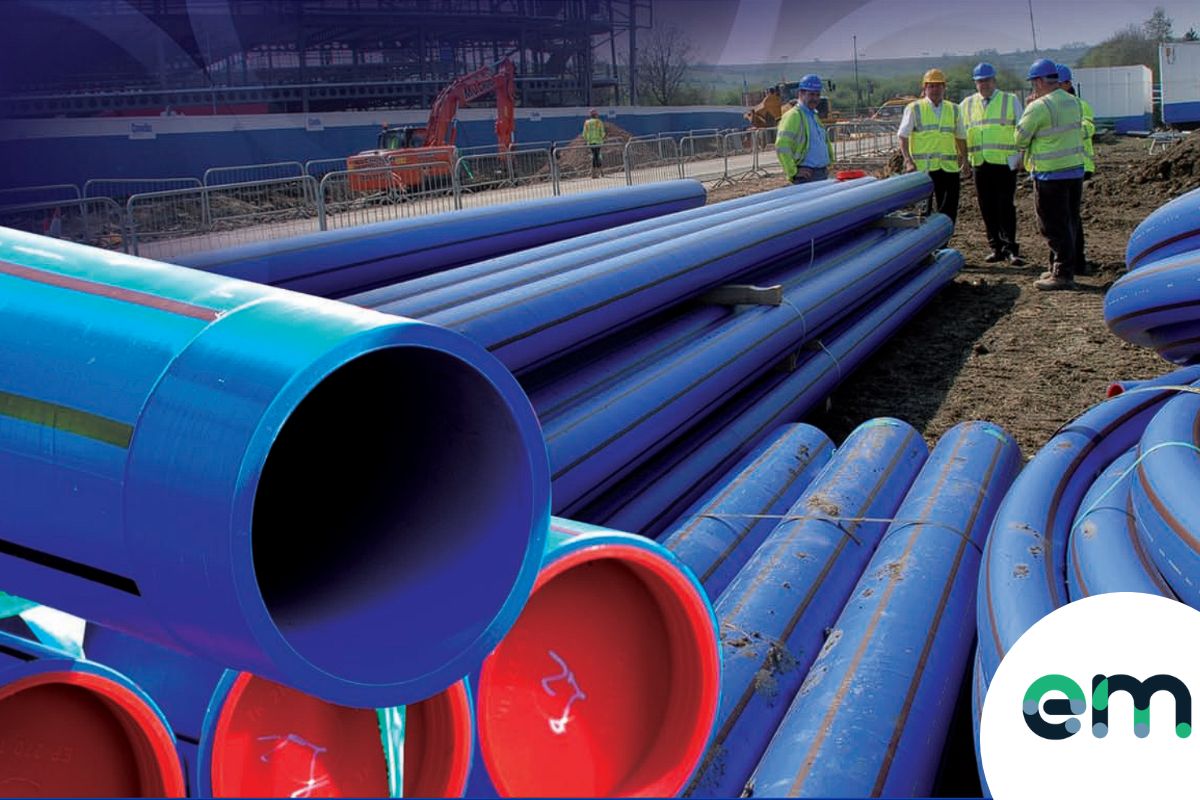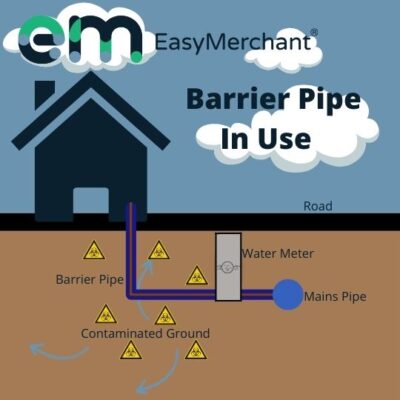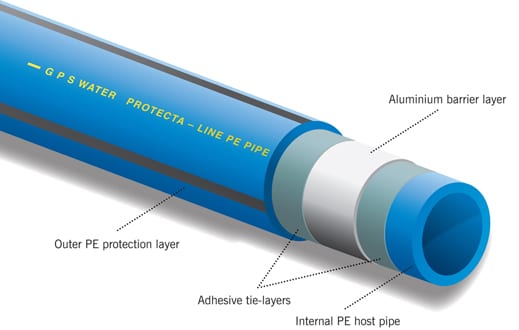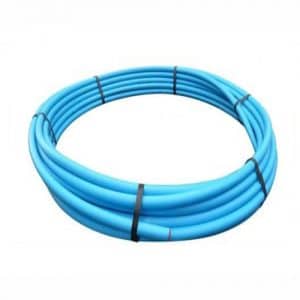No products in the basket.
Blog
What Is Barrier Pipe
A barrier pipe is a strong type of water pipe that is often used in the place of MDPE (medium density polyethylene) pipes in areas that have contaminated soil, this is because MDPE is not strong enough to keep contaminants out. It offers more protection than an MDPE water pipe as it is structurally built for the purpose of protecting the water that flows through it, but it often costs more due to the process of creating the pipes, as there are a variety to choose from. These include ductile iron, plastic-coated copper, and multi-layer pipes with an inner metal layer. So be sure that you are aware which one you will need for your job.
So, what is the Barrier pipe used for?
Barrier pipe is the go-to option when building on a brownfield site, which is an area that would have previously been used for industrial purposes, due to its protective features. This means that any poisons and toxins that may be left in the soil as a result of previous industrial activities won’t be able to breach the pipe system and interfere with the drinking water going through the pipe.
Ductile iron barrier pipe is most commonly used for the carrying of water that is safe to drink, plastic coated copper pipes are mostly used for bathroom plumbing jobs and multi-layer pipes with a metal layer are frequently used for general water systems as well as drinking water systems. The most common type of barrier piping is the range with a metal inner layer surrounded by polyethylene, which is used for carrying drinking water.
Key features of barrier pipe:
Reliable.
Remains stable when fitted.
Polyethylene inner and outer walls.
Good flexibility.
Easy to install.
It is a good choice for use in a polluted area.
People often wonder why a barrier pipe offers more protection than a regular MDPE pipe. In short, the added metal barrier within the pipe forms a wall that doesn’t allow for common hydrocarbons, like gasoline, to enter the water stream. It also means that if the ground is not already contaminated, the pipe will be able to cope with any accidents that may occur. For example, if a small oil spillage was to occur, this could mean that the ground could become contaminated and make it’s way down into the water system over a period of time. However, if the barrier pipe is there, the oil won’t be able to breach the walls of the pipe or enter the water stream.
Barrier pipe is renowned for its unmatched strength and reliability. This is due to the construction of the pipework itself, and the materials involved. In general, barrier pipe is made using a polyethylene inner core, with a layer of aluminium above that, with the top layer also being made from polyethylene for extra protection on the outside. Along with this, a major upside of this is that it doesn’t allow for the inflow of oxygen, which means that the metals on the inside of the pipe won’t rust. Due to polyethylene being a notoriously economical and durable material, it is also a sustainable and cost-effective option because it offers enough durability to have a long-lasting life span.
What is the difference between the Puriton barrier pipe and the Protecta-line barrier pipe?
There are no overriding differences between the pipes other than the brand name. They are both approved by British standards (BS 8588) and are also constructed with multiple tough and durable layers. Both of the brands are suitable for common installation techniques being lightweight and flexible, which makes fitting the pipes a whole lot easier. If your job requires a certain spec, then you will seek to use what is required for your job. However, both the pipes are designed and built with equal quality to ensure that they are able to protect the water that is passing through them. This is why they are both quality-approved products.
When you go to buy a barrier pipe you will be asked about which SDR (standard dimension ratio) you require, so it is definitely worth knowing the difference. A good way to remember the difference is, the lower the SDR value is, the thicker the outside wall will be and vice versa. The choice will most of the time be between SDR 11 and SDR 17. SDR11 essentially means that the outside diameter is 11 times the thickness of the actual pipe wall and, as you can guess, SDR17 stands for the same idea. The different sizes are made to cope with different pressures, so we would always recommend being aware of what pressure you will be running through the pipe before you attempt to make a purchase, as this is crucial to your project, if you want to ensure it is safe and falls in line with any regulations. SDR 11 is a stronger pipe in terms of stability than SDR17 due to its thickness, but in terms of ring deflection, SDR17 is the superior pipe, which means that the end ring of the pipe has a very high tensile strength.
It is worth mentioning that if you’re planning to lay your barrier pipes in a brownfield area that has previously been used for industrial purposes, then you must be aware of potential contaminants that may be present in the soil. This is because the area being built on may have been used for any of the following:
The use of large amounts of lead.
Heavy metal construction.
Oil production.
Production of solvents like ethanol and methanol, harmful gases and asbestos.
The use of radioactive substances.
Large scale factory production.
A refinery.
An old landfill site.
Common practice is to provide reports of how the land has been used in the past before it can be concluded that pipe needs to be used. In performing an accurate report on the brownfield site, you will be able to know for sure what pipe you will need in order to be successful in your project.
If you are struggling to find out the information that you require, please get in contact with us and we will do our best to help answer any questions that you have!




Do your pipes require a chlorine test?